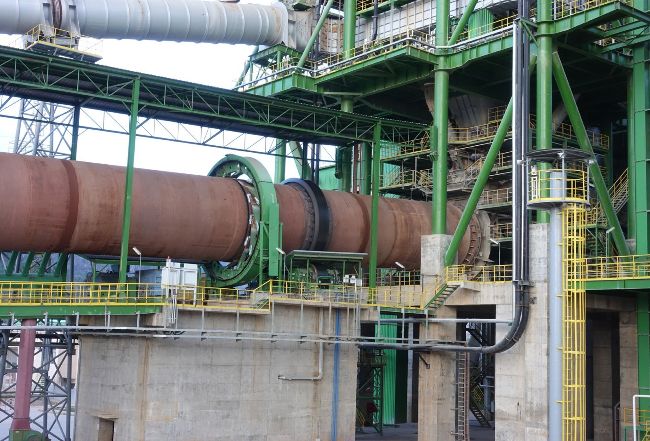Cement Industry lubrication
Q Why do we need specialty lubes in the cement industry?
A Cement production involves components like bearings and gears of rotary kilns, mills, roller presses, crushers, etc. The wrong choice of lubricants or the use of general-purpose lubricants may lead to premature failure of components or breakdown, resulting in loss of production and increased maintenance costs. Hence, specialty lubricants are necessary in the cement industry to optimize the efficiency and life of components and avoid unscheduled maintenance. If working conditions are studied thoroughly and then a suitable lubrication product is selected, it may improve the operating efficiency of equipment, enhance component life, and reduce downtime significantly.
Q Why is it necessary to clean the assembly before applying lubricant?
A Various reasons warrant cleaning of equipment before application of lubricant or relubrication. However, the primary reasons may be as follows: First, if the new lubricant is incompatible with the previous one, it may harm the equipment. Thus, it is important to remove all traces of the previous lubricant by completely cleaning it. Secondly, cement plants invariably operate in highdust areas, and cleaning the assembly removes dust and other contamination from the system before they start damaging the equipment.
Q How can sludge formation be controlled in gearboxes of the cement industry?
Sludge formation occurs in oxygen, water/moisture, and heat. Properly sealing the gearbox to avoid contamination with water and oxygen can prevent this. Excessive high operating temperatures can weaken the bonds between oil molecules, resulting in foaming and carbon residue, leading to sludge formation. Managing the high temperature through proper lubrication may help control sludge formation.

Kiln in a cement manufacturing plant.
SOURCE | SHUTTERSTOCK|PARMNA
Q How can vibration be controlled using proper lubricant?
A Primary causes of vibrations are imbalance, misalignment, wear, loose connection, etc.
If the vibration is caused by wear, effective lubrication can minimize it. For other reasons, appropriate tools should be considered to ensure perfect alignment of all assembly components.
Q What is the benefit of using lubricant analysis in case of critical applications in cement plants?
A Lubricant analysis monitors samples for mechanical, operational, and environmental factors that affect equipment and lubricant life.
The used lubricant analysis can offer information that ensures the following benefits are reaped:
• Less lubricant to purchase.
• Fewer machine parts to be kept in inventory.
• Less used lubricant requiring disposal.
• Less labour cost.
• Less Downtime.
• Less probability of unexpected failure.
Q How do environmental conditions affect lubrication?
A Humidity, excessive heat, and a dirty or dusty atmosphere can adversely affect the lubricant’s performance. Excessive heat can weaken the bonds of a lubricant. Dirt and dust can contaminate the lubricant, resulting in more friction, which leads to a high operating temperature, that hampers the life of the component and can cause unexpected maintenance breakdowns. .
Mosil Lubricants provided these FAQs: Established in 1971, Mosil is an Indian-origin company specializing in specialty lubricants. With over 40 years of expertise, Mosil is renowned for its commitment to excellence, introducing groundbreaking solutions and synthetic lubricants based on rigorous research and development. Embracing a visionary approach, Mosil has become a trusted name in the lubrication industry, solving maintenance challenges and contributing to the efficiency of diverse applications worldwide. To explore our cutting-edge lubricants, visit www.mosil. com or contact us at enquiry@mosil.com